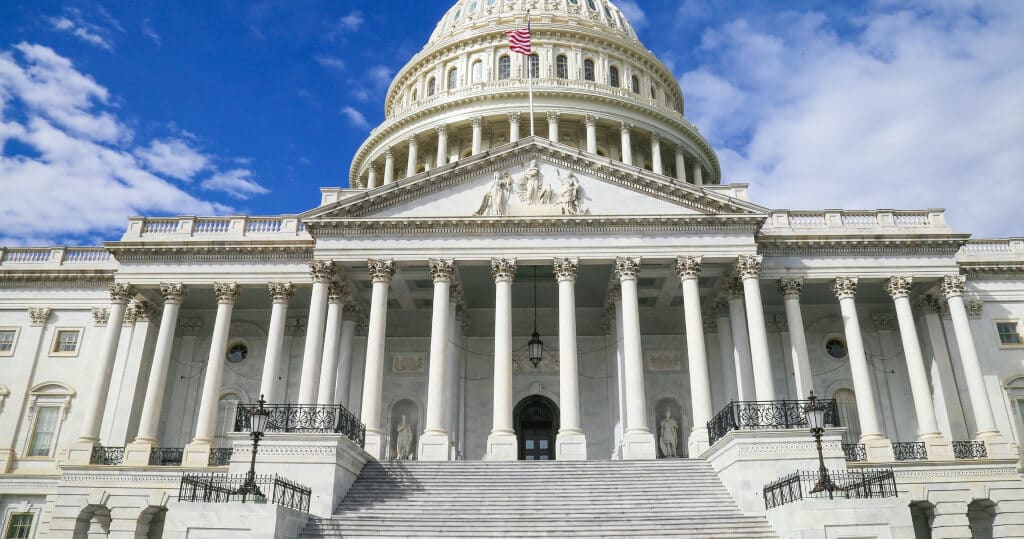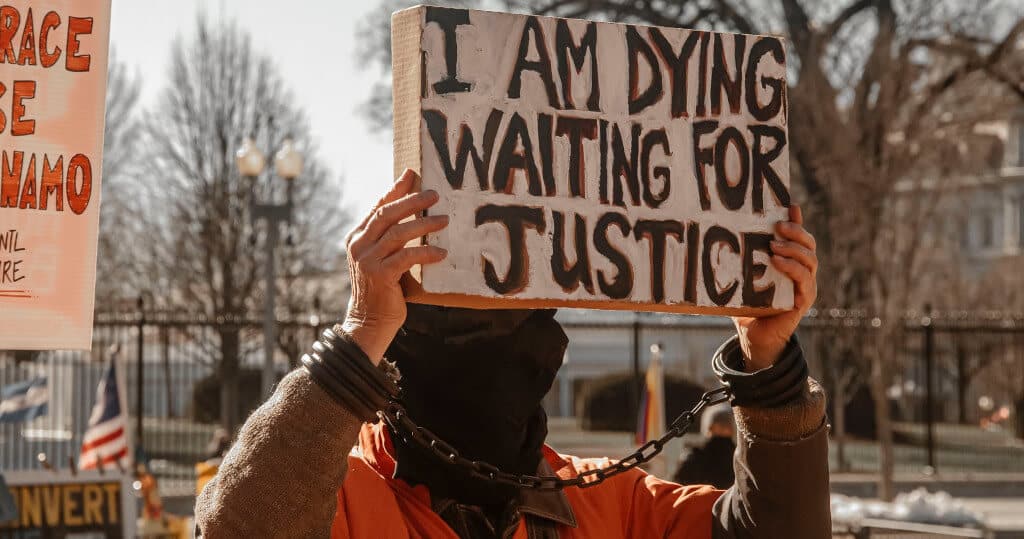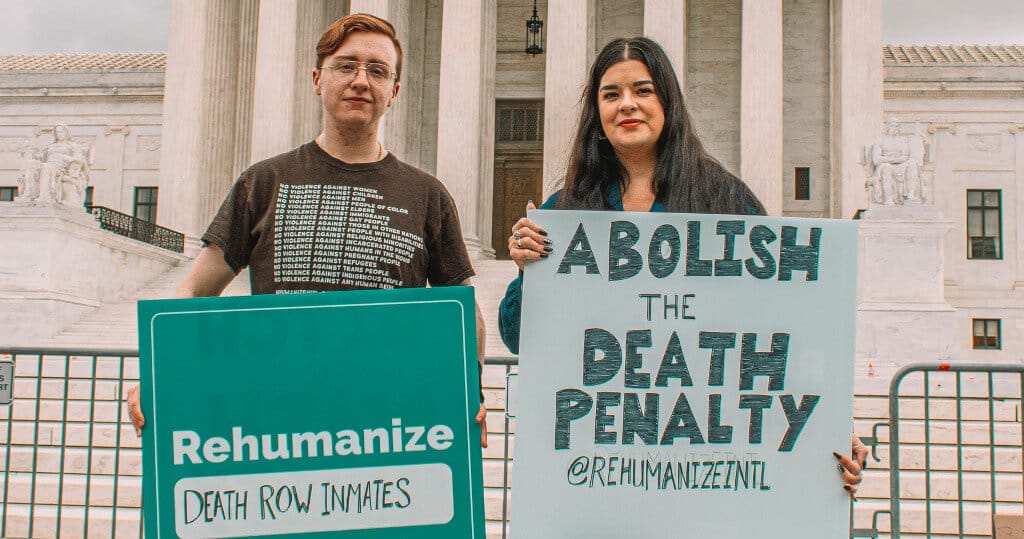Table of Contents
Toggle8th Amendment
“Excessive bail shall not be required, nor excessive fines imposed, nor cruel and unusual punishments inflicted.”
8th Amendment Simplified
According to the 8th Amendment of the United States Constitution, fines should not be imposed in excess, nor excess bail be required. It also prohibits any punishment that is brutal and barbaric.

The amendment, which was ratified on December 15, 1791 as part of the Bill of Rights, protects criminal defendants from receiving cruel and unusual punishment from the federal government. This is for both being punished for a crime or as excessive bail for being released before a trial.
It’s crucial to understand a few aspects of what is regarded as cruel and unusual punishment and why it was so important that it was added to the US Constitution.
Why It Was Added to the Constitution
Going back into history, George Mason was responsible for including a ban on unusual and cruel punishments in the Commonwealth Declaration of Rights.

This was in 1776, and in 1791 the Constitution’s Eighth Amendment included the same concept. The bill was first introduced in England before being adopted in the Constitution.
Prior to the United States Constitution, there was no Bill of Rights, and cruel punishments were not prohibited.
It was only after the ratification of the Constitution that several debates were held regarding the use of cruel and unusual punishments and if they should be used or not. The majority supported the presence of the clause.

Get Smarter on US News, History, and the Constitution
Join the thousands of fellow patriots who rely on our 5-minute newsletter to stay informed on the key events and trends that shaped our nation's past and continue to shape its present.
Fears over the use of corporal punishment
Under the Articles of Confederation, the government was very much constrained, but the changes that were proposed for the Constitution gave the federal government much more power.

One of the most significant powers included determining federal crimes and criminal punishment for offenders who commit crimes.
The Anti-Federalists feared the new Constitution would create opportunities for Congress to oppress people through brutal punishments. There was no restriction on the type of severe punishments they could think of utilizing.
They thought Congress would use cruel punishments to force confessions through torture, as in some European states.

The clause opposed the cruel punishment of criminals. Therefore, it is intended to prevent the federal government from reintroducing cruel punishments.
If the federal government tries doing anything related to cruelty in terms of punishment, it will breach the Eighth Amendment.
Opinions on the Eighth Amendment
There are disagreements on cruel and unusual punishment and how they’re carried out.

One of them is how the court decides whether the caliber of criminal punishment is cruel and unconstitutional and what standard should be set.
Another is whether only the barbaric modes of unusual punishment should be stopped or prohibit penalties that don’t balance with a person’s offense.
For example, consider someone violating some parking regulations and then getting sentenced to life.

The capital punishment debate
The third argument from proponents is whether or not the Eighth Amendment prohibits the death penalty. Many of them believe capital punishment should be categorized with the old barbaric punishments and should be removed.

Another concern is whether or not some current punishments, such as solitary confinement or the death penalty in the form of lethal injection, should be deemed a cruel punishment.
Those are some arguments weighed upon the 8th Amendment of the United States Constitution.
Related Supreme Court Cases to the Eighth Amendment
Explore the 27 Constitutional Amendments
- 1st Amendment
- 2nd Amendment
- 3rd Amendment
- 4th Amendment
- 5th Amendment
- 6th Amendment
- 7th Amendment
- 8th Amendment
- 9th Amendment
- 10th Amendment
- 11th Amendment
- 12th Amendment
- 13th Amendment
- 14th Amendment
- 15th Amendment
- 16th Amendment
- 17th Amendment
- 18th Amendment
- 19th Amendment
- 20th Amendment
- 21st Amendment
- 22nd Amendment
- 23rd Amendment
- 24th Amendment
- 25th Amendment
- 26th Amendment
- 27th Amendment










2 Responses
We All need to study, learn and Stand up for the Documents that protect Our Freedoms. So Many have given their lives So We and generations to come May Remain a Fair, Just and Free Nation. The Current Administration wants to Destroy that They seek to make the Same Mistakes So Many other once great Nations have made by taking the power from the people and controlling Us with Massive Government and Laws and Regulations we have No say in.
This is Socialism, Communism, Fascism, Regardless of what form and extent they take These forms of Government Always end in Total destruction, Civil wars, and the Bourgeois being the Only ones that benefit. The January 6 2020 Incident at the Capitol is a perfect example of disregard for Our Constitution. The Eighth Amendment prevents holding people without bail, as Well as cruel and abusive treatment, torture etc…
The Media Turned a Peaceful Protest into a fake Insurrection, They didn’t just embellish the story they created a Work of fiction. The Only Crimes committed that day were perpetrated by a handful of people out of the Thousand or more that attended.
They did break in which is a crime but after the forced entry Capitol police were filmed holding the door open to almost encourage more to enter. The worst Lie told was the media claiming a law enforcement officer was hit with a fire extinguisher and killed That Entire event Never occurred The officer was Never threatened with anything He left work that day Totally unscathed, went home Safely. Sadly. He Suffered a Heart attack at his home the next morning. There is video to support Every Facet of Actual Factual events.
There was a murder that day however it was an Unarmed young woman, a Veteran that wasn’t destructive or seemingly unruly but she was Shot to death by Capitol police. Her murder has yet to be investigated.
Those arrested that day have had All of their 8th Amendment Rights Violated by People who Swore an Oath to Protect, defend and uphold the Constitution of the United States of America.
You are another moron who needs to get off of your meds and take a look at the real world you are running over with your Constitution tank. If that crowd had been black or brown they would have been gunned down and eaten by police dogs. That was an inside job which is why the doors were held open by the officers and the entire scene is a perfect example of an uniformed public being led by a psychopath.